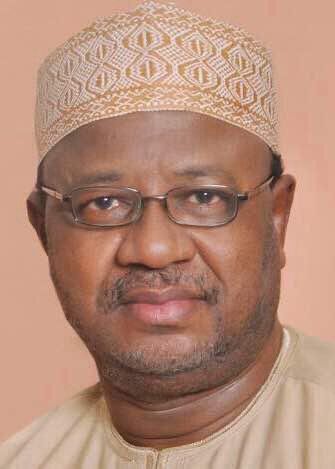Opinion
A Critical Analysis Of The Creation Of New Chiefdoms And Emirates In Adamawa State

A Critical Analysis of the Creation of New Chiefdoms and Emirates in Adamawa State
By Umar Ardo, Ph.D
Yesterday’s decision of Governor Ahmadu Umaru Fintiri to create seven new chiefdoms and emirates in Adamawa State with about 79 different ethnic groups, described by the GPF as a “watershed moment for cultural autonomy and self-determination,” is, far from being a monumental achievement, riddled with historical inaccuracies, ethnic and religious biases, and portending societal discord.
2. First, the decision to sever historically significant domains such as Gurin and Ribadu from Yola and place them under Fufore is a glaring historical anomaly. These locations were central to Modibbo Adama’s legacy and are integral to the cultural and political identity of the Adamawa Emirate. Similarly, the inclusion of Malabu and Daware, both king-electors of the Lamido in Yola, into the newly created Fufore emirate undermines the historical role and authority of the traditional Adamawa Emirate. This restructuring disregards the historical and cultural cohesion that has been central to the identity of these domains, hence creating unnecessary divisions and fostering resentment.
3. Second, while the creation of new chiefdoms and emirates might seem like a step towards cultural recognition, the decision to classify them as 2nd Class and 3rd Class entities is a halfhearted act that reveals a lack of genuine commitment to their empowerment. The communities that advocated for these chiefdoms did so with the expectation of equal status with existing 1st class chiefdoms, yet they have been relegated to subordinate positions. It makes no sense to have Bata and Mbula, for example, as 1st Class and Kilba and Michika as 2nd Class and Yungur as 3rd Class. This disheartening outcome is likely to breed disillusionment among the communities affected and diminish whatever credibility of government’s intentions.
4. Third, if the act is aimed at “liberating smaller ethnic nationalities of dominations by larger groups”, the categorization of these new entities as 2nd and 3rd classes, still subordinates them to those of 1st class status. And in a state that harbors 79 distinct ethnic groups, the new situation will only highlight the sensitivities and fears of other ethnic minorities who have been effectively excluded from and marginalized by the new status quo.
5. Fourth, the creation of these chiefdoms and emirates raises questions about the ability to appoint their traditional leaders in a manner that respects ethnic and religious diversities of the domains. In these mixed communities of Muslims and Christians, and different ethnic groups, such as Fufore, Hona, Gombi, Maiha and Madagali, this move is more likely to escalate religious and ethnic tensions than promote societal unity, amity and harmony. The appointment of kings or chiefs in these areas will inevitably lead to contestations, as groups vie for dominance. This is a recipe for conflicts that could well destabilize the state.
6. Fifth, the claim that the creation of these new chiefdoms will restore cultural autonomy is unfounded. Without real executive or legislative powers, financial resources or authority, these chiefdoms and emirates will, like the ones before them, remain mere symbolic structures, adding little value to governance or cultural preservation. True autonomy is achieved through effective state authority, economic empowerment, infrastructural development and inclusive governance, not through the mere proliferation of administrative titles. For instance, GPF’s assertion that the government’s move fosters “unity” is contradicted by the evident divisiveness it has already introduced. Creating new administrative entities without addressing the underlying issues of ethnic and religious discord only exacerbates existing divisions. Instead of promoting cohesion, these new chiefdoms and emirates risk becoming flashpoints for intercommunal rivalry.
7. The advocacy for these chiefdoms appears to stem from a misplaced sense of marginalization, as though the mere creation of a chiefdom or emirate inherently elevates a community’s status. Rather than focusing on superficial titles, communities should prioritize their demands of government for tangible socio-economic development, education and security. Traditional titles, while culturally significant, cannot substitute for real progress.
8. The GPF’s praise for Governor Fintiri as a “fearless leader and emancipator” is unwarranted. Visionary leadership is demonstrated through strategic policies that address core issues such as poverty, unemployment and insecurity. This move, at a time when the state is beset by societal insecurity, inequality, poverty, destitution, out-of-school children and lacking a clear developmental roadmap, appears more like a populist gesture designed to appease sectional interests rather than a genuine effort to advance Adamawa’s development.
9. On the whole, therefore, the creation of these chiefdoms and emirates, rather than being a monumental achievement, is a misstep that ignores societal complexities and historical realities, perpetuates ethnic and religious biases and fosters intercultural discord. To truly promote cultural autonomy and unity, the government should rather focus on addressing the root causes of marginalization through inclusive governance, infrastructural development and policies that bridge rather than widen divides. Without a reevaluation of this decision and a shift towards addressing the real needs of the people, this move will ultimately do more harm than good to the societal fabric of Adamawa State.







